Reuters
By
Kylie MacLellan and Anirban Nag
Britain’s vote to leave the European Union continued to reverberate through financial markets, with the pound falling to its lowest level in 31 years, despite government attempts to relieve some of the confusion about the political and economic outlook.
UK Chancellor George Osborne said early Monday that the British economy was strong enough to cope with the market volatility caused by last week’s “Brexit” referendum which has resulted in the biggest blow since World War Two to the European goal of forging greater unity.
“Our economy is about as strong as it could be to confront the challenge our country now faces,” Osborne told reporters.
“It is inevitable after Thursday’s vote that Britain’s economy is going to have to adjust to the new situation we find ourselves in,” said Osborne, who later ruled himself out of the running to succeed David Cameron as prime minister.
Britain’s Chancellor of the Exchequer George Osborne speaks at a news conference in central London, Britain June 27, 2016. REUTERS/Stefan Rousseau
Boris Johnson, a leading proponent of Brexit and the frontrunner to be the next prime minister, praised Osborne for saying “some reassuring things to the markets”.
The former London mayor said it was now clear that “people’s pensions are safe, the pound is stable, markets are stable. I think that is all very good news.”
Vote Leave campaign leader, Boris Johnson, leaves his home in London, Britain June 27, 2016. REUTERS/Neil Hall
But neither Osborne’s nor Johnson’s words failed to stop the slide in stocks on world markets which began last Friday when Britons confounded investors’ expectations by voting to end 43 years of EU membership.
European bank shares had their worst two-day fall on record and world stocks as measured by MSCI index saw their worst two-day fall since the collapse of U.S. investment bank Lehman Brothers during the 2008 financial crisis. On Friday alone about $2.8 trillion was wiped off the value of world stocks, the biggest daily loss ever.
Sterling fell to a low around $1.3120, its lowest level since mid-1985. The euro also remained weak, after falling to a three-month low around $1.0910 on Friday.
Asian stocks markets opened weaker on Tuesday, with MSCI’s Asia ex-Japan index extending losses for a third day, down 0.5 percent. Japan’s Nikkei was off 0.7 percent.
A man wearing prayer beads looks at an electronic board at a brokerage house in Beijing, China, June 27, 2016. REUTERS/Kim Kyung-Hoon
“Markets already appear to be pricing in a full-blown recession in the U.K. and rising recession risk in the rest of Europe,” said David Donabedian, chief investment officer of Atlantic Trust Private Wealth Management.
Ratings agency Standard & Poor’s stripped Britain of its last remaining top-notch credit rating on Monday, warning that more downgrades could follow.
“In our opinion, this (referendum) outcome is a seminal event, and will lead to a less predictable, stable, and effective policy framework in the UK,” S&P said in a statement.
The yield on British 10-year government bonds fell below 1.0 percent for the first time as investors bet the Brexit vote would trigger a Bank of England interest rate cut aimed at steadying the economy.
U.S. stocks ended lower for a second day also, following European markets, pulled down by banking stocks amid uncertainty over London’s future as the region’s financial capital. Safe-haven bond and gold prices rose.
U.S. Treasury Secretary Jack Lew on Monday said he sees no signs of a financial crisis arising from Britain’s decision last week, although he admitted that the result does present additional “headwinds” for the U.S. economy.
Visiting Brussels, U.S. Secretary of State John Kerry said it was important that “nobody loses their head” as the EU and Britain deal with the fallout from the referendum.
European Central Bank President Mario Draghi expressed “sadness” on Monday at Britain’s vote to leave the European Union.
Draghi will fly to Brussels on Tuesday, where he is expected to brief European leaders about the impact of the UK vote on the euro zone at a two-day European Council meeting.
POLITICAL CONFUSION IN BRITAIN
With the ruling U.K. Conservative party looking for a new leader after Cameron’s resignation on Friday and lawmakers from the opposition Labour party stepping up a rebellion against their leader, Britain sank deeper into political chaos.
“There’s no political leadership in the UK right when markets need the reassurance of direction,” said Luke Hickmore of Aberdeen Asset Management, expressing the view of many in the City of London financial centre.
A still image from video shows Britain’s Prime Minister David Cameron speaking to the House of Commons about the recent EU referendum in central London, Britain June 27, 2016. REUTERS/UK Parliament via REUTERS
British broadcaster Sky News said work and pensions minister Stephen Crabb was also considering a bid for the Conservative party leadership, with business secretary Sajid Javid seeking to become finance minister. Both were in favour of staying in the EU. The editor of the Spectator magazine tweeted that Health Secretary Jeremy Hunt was also “highly likely” to launch a bid.
Cameron says he will stay on until October as a caretaker and that his successor should trigger the formal process of leaving the EU. His Conservative Party in parliament recommended choosing a successor by early September.
The prime minister sought to calm fears over the fallout of the referendum and said parliament should not try to block Britain’s departure. A majority of parliamentarians, like him, had argued that Britain should stay in the EU.
“I am clear, and the cabinet agreed this morning, that the decision must be accepted,” Cameron told parliament, which also faces a public petition for a new referendum.
While the question of whether to leave the EU has split the ruling Conservative party, divisions within the opposition are also deep. A wave of Labour lawmakers resigned from leader Jeremy Corbyn’s team on Monday, adding to the 11 senior figures who quit on Sunday, saying his campaign to keep Britain in the EU was half-hearted.
Corbyn, a left-winger who has strong support among ordinary party members, has said he is not stepping down.
The leader of Britain’s opposition Labour party, Jeremy Corbyn, leaves his home in London, Britain June 27, 2016. REUTERS/Neil Hall
Discontent with the political establishment in general and the Conservatives in particular was a factor behind the vote to leave, although many Brexit backers focused on immigration, complaining too many migrants had arrived from eastern Europe.
Piling on misery for beaten English “remain” voters, the country’s soccer team on Monday crashed out of the Euro 2016 soccer competition to tiny Iceland.
“We embarrassed ourselves three of four days ago in the referendum, we’ve embarrassed ourselves now. It’s a really, really sad time to be English,” lamented English soccer fan Alex in the French city of Nice.
EUROPE WANTS QUICKER RESOLUTION
Cameron’s refusal to start formal moves to pull the country out of the EU has prompted many European leaders to demand quicker action by Britain, the EU’s second largest economy after Germany, to leave the 28-country bloc.
“It should be implemented quickly. We cannot remain in an uncertain and indefinite situation,” French Finance Minister Michel Sapin said on France 2 television.
Guenther Oettinger, German member of the EU’s executive European Commission, said delay would hurt Europe as well as Britain. “Every day of uncertainty prevents investors from putting their funds into Britain, and also other European markets,” he told Deutschlandfunk radio.
Cameron heads to Brussels on Tuesday for a grim EU summit dinner, while the other 27 leaders will meet for the first time without him on Wednesday morning to plan their next moves. They are likely to stress a willingness to negotiate, but only after London binds itself to a tight two-year exit timetable.
A still image from video shows Britain’s Prime Minister David Cameron speaking to the House of Commons about the recent EU referendum in central London, Britain June 27, 2016. REUTERS/UK Parliament via REUTERS
The leaders of France, Germany and Italy met in Berlin on Monday and said Europe needed to respond to its people’s concerns by setting clear goals to improve security, the economy and prospects for young people.
German Chancellor Angela Merkel, who has appeared to take a softer line on Britain’s decision than some European leaders, said she had “neither a brake nor an accelerator” to control events, adding: “We just don’t want an impasse.”
The political, economic and regulatory uncertainty is being felt across the globe at a time when economies are still slowly recovering from the 2008 economic crisis, interest rates are close to zero, and central banks have fewer tools than normal to revive demand if countries enter recession.
South Korea said on Tuesday it would propose a supplementary budget of around 10 trillion won (6.35 billion pounds), in part to help it manage Brexit turmoil in financial markets.
UNITED STATES
It is important that “nobody loses their head” as the European Union and the United Kingdom grapple with the effects of a referendum in which Britons voted to leave the 28-nation bloc, U.S. Secretary of State John Kerry said on Monday.
Britain’s referendum last week to leave the bloc sent global stocks tumbling and dealt an unprecedented blow to Europe’s post-World War Two order, while triggering a political meltdown in Britain itself, with the ruling Conservatives and opposition Labour Party both in disarray.
U.S. Secretary of State John Kerry arrives to address a joint news conference with European Union foreign policy chief Federica Mogherini (unseen) after their meeting the EU Commission headquarters in Brussels, Belgium, June 27, 2016. REUTERS/Francois Lenoir
Prime Minister David Cameron has announced his resignation and said it will be up to his successor to begin formal exit negotiations, leaving unresolved the overall strategy, the timetable for an exit or even the name of the next leader.
“It is absolutely essential that we stay focused on how in this transitional period, nobody loses their head, nobody goes off half-cocked, people don’t start moving on scatter-brained or revengeful premises,” Kerry told reporters in Brussels, standing next to EU foreign policy chief Federica Mogherini.
Kerry repeated his plea hours later in London, where he emphasized Washington’s “special relationship” with Britain and said the United Kingdom’s role in the world would be changed, but not diminished as a result of the EU vote.
While not taking a stance on how swiftly Britain should now exit the EU, he said: “The key is that everybody does this in the spirit of looking for the best way forward, so that economies are not injured, so that security interests are not set back.”
British Foreign Secretary Philip Hammond, appearing with Kerry, said he hoped for an “amicable” negotiation with the EU, but acknowledged other members’ ire at London.
“The wound is quite raw,” Hammond said. “It will take some time for the wound to settle down.”
Kerry was meeting later with the outgoing Cameron.
U.S. President Barack Obama had personally called on British voters before the referendum to remain in the EU, and warned in April that the UK could be at “the back of the queue” for trade talks with Washington if it left the EU.
“The president’s concerns that he expressed are valid concerns,” Kerry said on Monday, adding that Washington is “currently evaluating the impact” of the so-called Brexit vote on a proposed U.S.-EU trade accord.
SECURITY
In Brussels, Kerry also met NATO Secretary General Jens Stoltenberg and stressed the importance of the military alliance in the face of the British vote.
“We have high expectations of a very strong NATO meeting and important deliverables,” Kerry said of a NATO summit planned for Warsaw on July 8-9. “That will not change one iota as a consequence of the vote that has taken place.”
U.S. Secretary of State John Kerry and European Union foreign policy chief Federica Mogherini arrive to address a joint news conference after their meeting the EU Commission headquarters in Brussels, Belgium, June 27, 2016. REUTERS/Francois Lenoir
NATO is expected to announce the strengthening of the alliance’s eastern flank, a response to Russia’s annexation of Crimea from Ukraine in March, 2014, and backing for rebels who have been fighting government troops in east Ukraine since then.
“After the UK decided to leave the European Union I think that NATO has become even more important as a platform for cooperation between Europe and North America but also defence and security cooperation between European NATO allies,” said Stoltenberg, whose own country Norway is in NATO but not the EU.
GERMANY
German Finance Minister Wolfgang Schaeuble said on Monday it would lead to nothing if EU member states discussed a treaty change as a reaction to the British decision to leave the bloc.
“It would be a waste of time to discuss a treaty change in the EU now,” Schaeuble said in a speech at a private university in the southern town of Kuenzelsau.
The veteran politician said the outcome of last week’s referendum was heartbreaking.
“One has the impression that the British also feel like crying, but that doesn’t help anyone now. They should have thought about it earlier,” Schaeuble said.
HOLLAND
Dutch Prime Minister Mark Rutte called on Monday for Britain to make a gradual transition out of the European Union after its vote for Brexit, which he said had triggered a political and economic crisis that threatens the rest of the bloc.
Rutte’s comments to parliament in the Netherlands, which holds the rotating European Union presidency, came on the eve of a European Council meeting in Brussels.
“It would be unwise to force a rapid departure. It would be prudent to give Britain time,” he told parliament. “There is a serious economic problem that could hurt the financial position of Britain and have consequences for the rest of Europe.”
Dutch Prime Minister Mark Rutte talks during a news conference with Italian Prime Minister Matteo Renzi (not seen) at Chigi palace in Rome, Italy May 19, 2016. REUTERS/Max Rossi
He said he preferred the process to happen “as soon as possible” but did not give a time frame.
British companies have stopped investing and London risks losing its strong financial position, with banks considering relocating to other European cities, he said.
Britain’s vote to leave the European Union sent new shockwaves through financial markets on Monday, with the pound falling despite government attempts to ease political and economic turmoil that has been unleashed.
Far right, anti-immigration leader Geert Wilders submitted a motion for the Netherlands to hold its own referendum on European Union membership. A vast majority of Dutch lawmakers support EU membership and it was expected to be defeated on Tuesday when it is put to a vote.
Additional reporting by Warren Strobel, Gabriela Baczynska, Ilona Wissenbach, Michael Nienaber and Anthony Deutsch

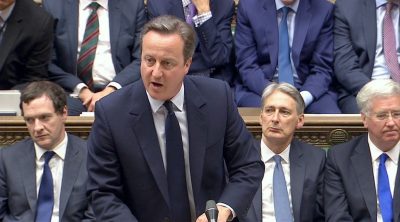
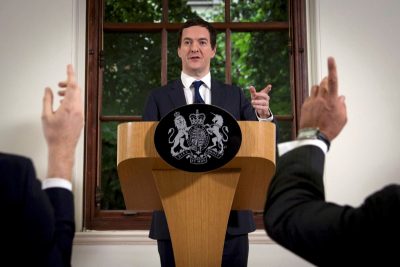
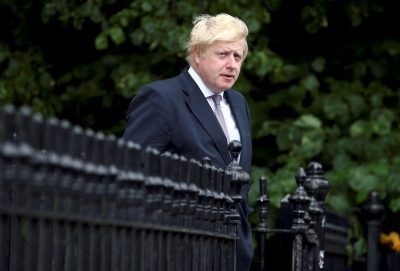
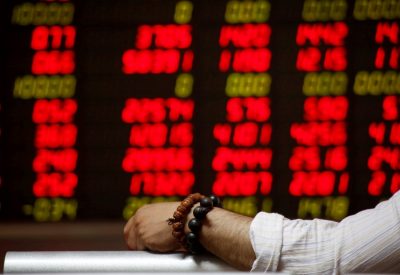
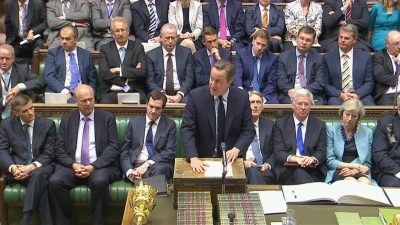
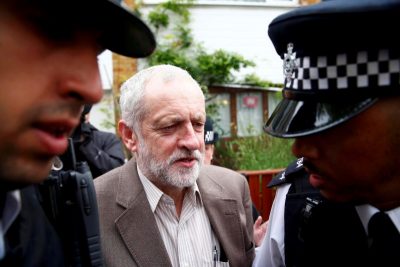
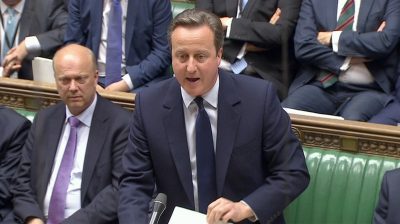
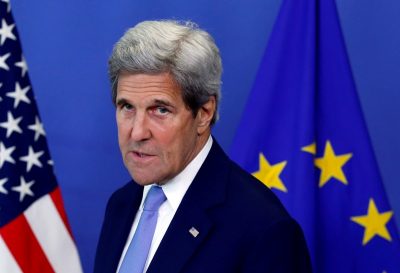
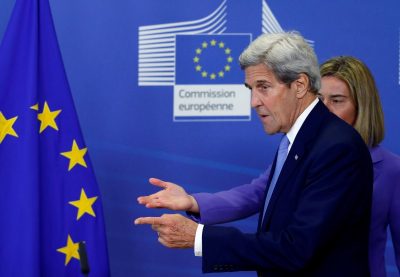
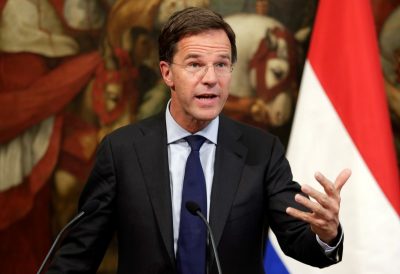

No Comments Yet!
You can be first to comment this post!